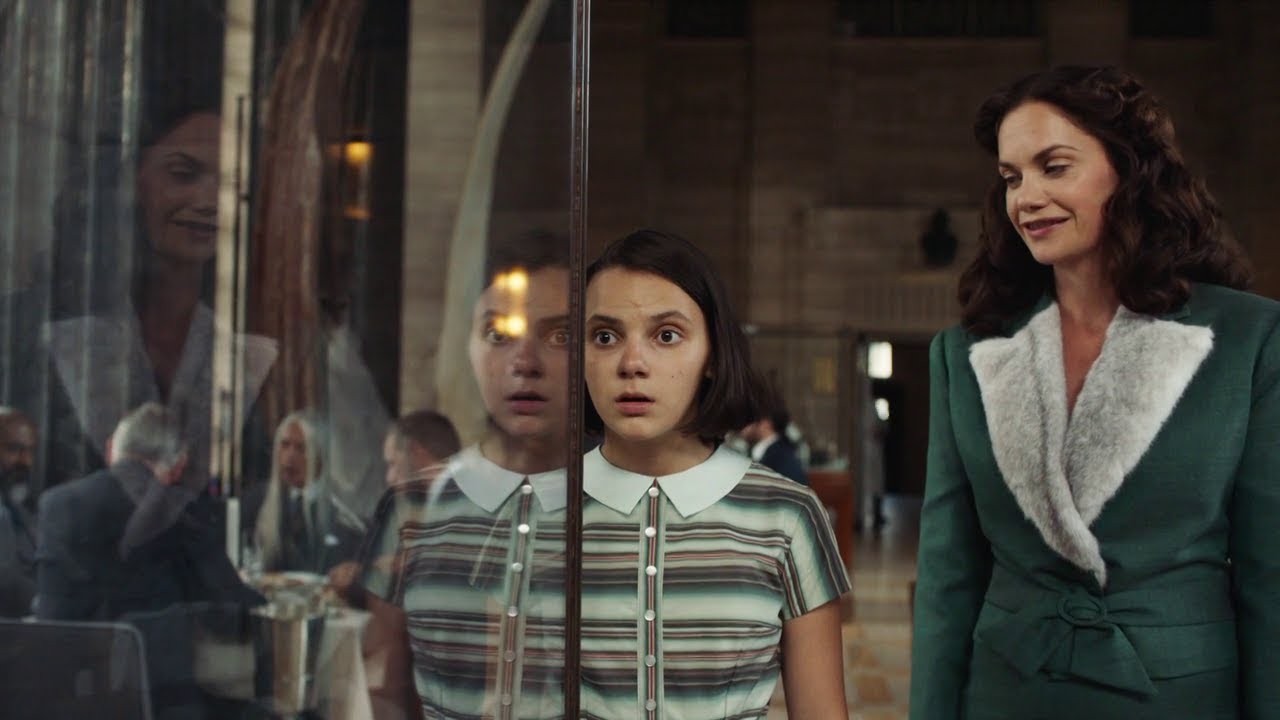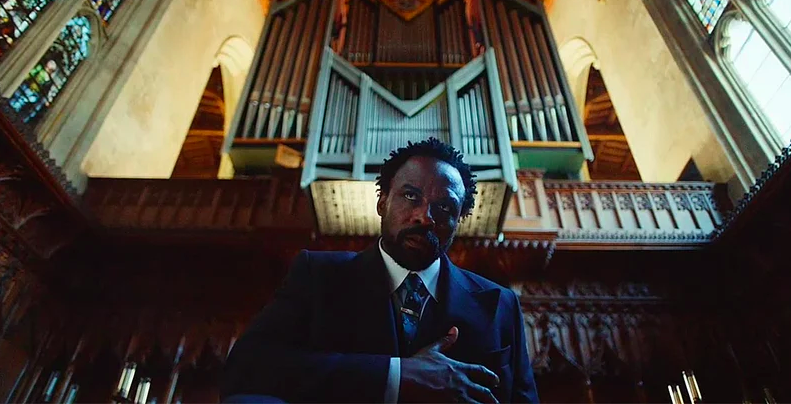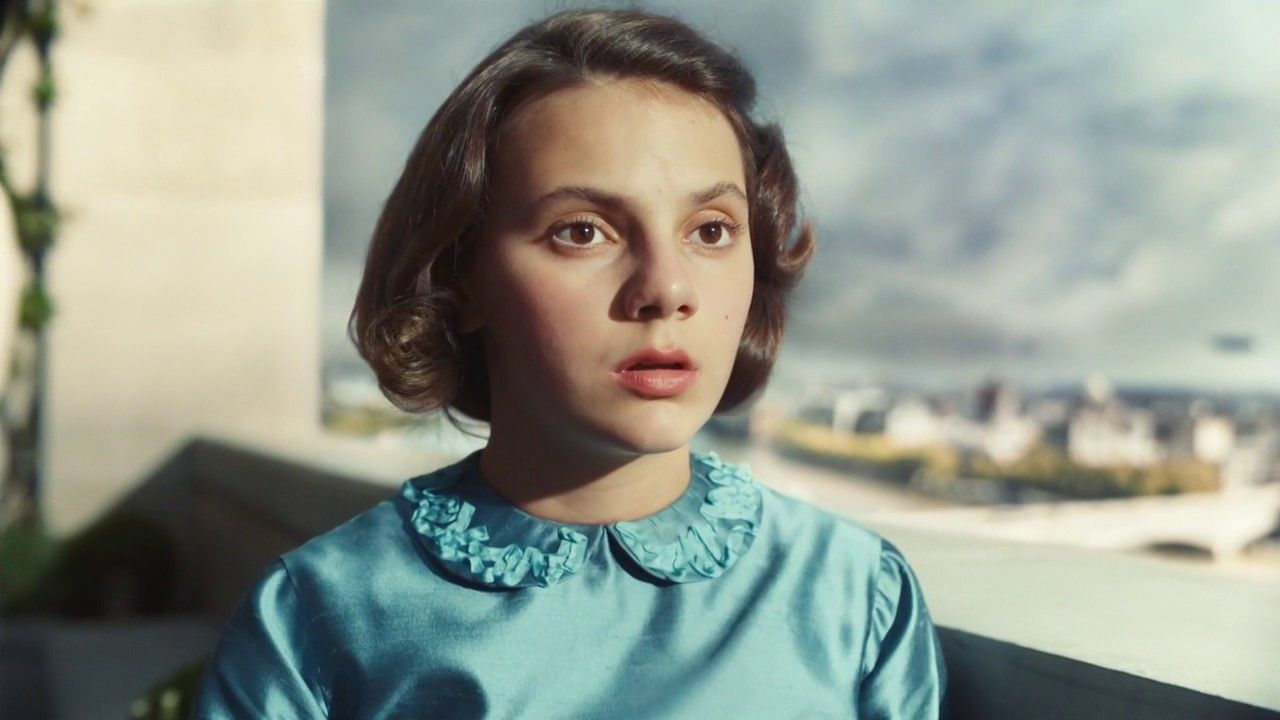After a loyal pilot that not only honored the first book but seemingly set the pace for the season, “The Idea Of North” threw everything in disarray as the plot of His Dark Materials went off the rails, pulling in ideas from later in the book series and diverting attention from Lyra’s storyline in Northern Lights.
Am I a fan of these changes? Ehhh… Unfortunately, one of the problems with the transfer from book to screen lies in the loss of a large chunk of Lyra’s personality. Much of Lyra’s personality, insight, and instinct is on display within the narration of the story. It’s part of how we learn to love and admire Lyra. Yes, much of her precociousness and childishness betrays her age, but it also shows the world through the eyes of a very observant child. Without this lens, the story feels a little rudderless.
In a lot of ways, it feels like a show watcher who hasn’t read the books (or done some diligent Google searching) is like a person without their daemon. There is some kind of spark missing. And while “The Idea Of North” brings in major plot twists like the windows into parallel worlds to add some pizzazz, it almost cheapens Lyra’s story.
“The Idea Of North” shows us Lyra now firmly grounded in London with Mrs. Coulter in her luxurious art nouveau penthouse. Again, like I said last week, casting Ruth Wilson was truly a stroke of pure genius. First of all, whoever is dressing her, needs to give me a detailed list of her shopping cart.
Wilson perfectly personifies Mrs. Coulter’s charming and darkly seductive nature, while simultaneously pulling off terrifying menace and a constant undercurrent of malice. Her moments alone, like after giving Lyra a bath, reveal the rarely seen tender core of a woman who rarely has any softness to her. Getting to see her raise Lyra is far more satisfying on screen than in the text, that simply tells of Mrs. Coulter taking her shopping, showing her how to put on makeup, and generally grooming Lyra for her world.

Of course, in Lyra’s world, women do not possess much political or societal power. And when we visit the Institute for lunch, we get the sense that even though Mrs. Coulter holds a great deal of power with the church, she is still viewed as an outsider there amongst the other scholars who are decidedly male. Her identity as a woman plays a rather large part in Mrs. Coulter’s character, and as we find out more about her, her ambitions become more and more apparent.
The episode intercuts with Lyra’s story in Mrs. Coulter’s apartment, the Gyptians trying to find their missing children, and Lord Boreal’s transdimensional adventures. With Lyra as the main character, and Boreal going into a literal other world, the Gyptian storyline again falls flat for me.
The Gyptians, lead by John Faa and Farder Corum (the latter of which seems to be in charge, despite the fact that Lord Faa is the king of the Gyptians) are chasing down the Gobblers, but always seem to be one step behind Mrs. Coulter. The episode shows them breaking down doors in abandoned London factories, but it doesn’t seem clear to anyone why the Oblation Board doesn’t just take the kids directly to the north.
The interlude in London feels bizarre and the personification of the Gyptians is a pale imitation of the Gyptians in the novels. Ma Costa, a warm and loving woman who takes pride in her home, is reduced to a wreck in her small dingy boathouse. The Gyptians have this potent capability and strength to them when we meet them in the books, they are wry and clever and yes, they can often just be horrible stereotypes of the Romani, but they have a defined character of their own that feels lacking here.
Also, I’d like to point out again how stupid it is when adults call the general oblation board gobblers. Just call them child abductors. Please.
Anyways, as the Gyptians are always on the tails of the Oblation Board, the church orders Father McPhail to pay a visit to Mrs. Coulter to warn her about the position that they’re in and she, in turn, visits the children and prepares them for the North. While she is out, Pantalaimon realizes that Mrs. Coulter’s monkey daemon is using the vents in her apartment to spy on them.
Throughout the episode, Pantalaimon has been the voice of caution to a Lyra who is still very captivated by Mrs. Coulter at times. It makes Lyra seem woefully ignorant, bemoaning that she deserves nice things for once when Mrs. Coulter suggests that she changes her hair. For a girl who has grown up surrounded by servants in one of the most privileged places in England, this argument seems naive.
And, in fact, because we aren’t reminded more of who the daemons are, because we don’t have the narration to remind us that Pantalaimon is Lyra, there is something missing in these scenes. Pantalaimon being cautious while Lyra is cavalier feels correct, but it feels so out of character for Lyra not to care that there were sounds coming from the walls before.
Indeed, the culture of daemons is not explored enough. We don’t know anything about how far a daemon can be from a person because Lyra has never mentioned it, so when we see the golden monkey detached from Mrs. Coulter, it’s not nearly the shock it should be. Similarly, when Adele’s butterfly daemon is snatched by the hands of Boreal, there’s no one to remind us just how heinous the idea of touching someone’s daemon is. Even the scene in which the golden monkey attacks Pantalaimon feels a little awkward as Lyra simply writhes on the ground in pain.
Given how essential daemons are to this world, there is not nearly enough attention given to them. The scene in which Lyra tells Mrs. Coulter about dust while her daemon reveals her inner anxiousness and interest is a key scene but is not given nearly enough attention. It shows not only the usefulness of a daemon in being another pair of observant eyes, but also the weakness of daemons that can betray your deepest feelings.

But instead of that, we are treated to a different world. One very much like our own. Plunging head first into Will’s world from The Subtle Knife, we follow Lord Boreal as he searches for Grumman’s head. While it certainly takes away from the reveal at the end of Northern Lights that alternate worlds exist, the scene of Lord Boreal stepping through the window and walking up to his sleek black car is undeniably shocking.
This immediately poses Boreal as a villain, but one we hardly know or really care about. Other than his travels, he holds very little emotional weight as a character and that is more the weakness in his scenes than anything else. His scenes are brief, shrouded in mystery though it might be so vague that the average viewer might just have to hold on and wait to see what happens.
Despite this feeling like a misstep, the episode doesn’t just reveal new worlds but also the truth of Lyra’s parentage, which feels like it should have gotten center stage instead. Of course, anyone who watched Lord Asriel carry his sleeping daughter to bed and tuck her in might have already come to the conclusion, the revelation coming from Mrs. Coulter’s lips makes it ultra-satisfying.
In the book, Lyra is told of the truth by Lord Faa, who lays out the entire story of how her mother and father met and how she ended up at Jordan College, however it doesn’t have nearly the same amount of emotional impact than Mrs. Coulter revealing it to her in an emotional outburst. Those who guessed or know the truth can quickly see through her covering up the identity of her as Lyra’s mother.
The show doesn’t do much to hide this fact and, indeed, it seems like the kind of information that is kept from a child but is widely known by most people. The reveal makes the argument between Lyra and Mrs. Coulter even more explosive. Rather than just arguing over a shoulder bag, Lyra is caught eavesdropping and then Pantalaimon is brutally attacked by the golden monkey, before Mrs. Coulter reveals the truth.
Although she doesn’t reveal who she is to Lyra, the revelation that Asriel is her father is far more like a betrayal than a joyous discovery to this Lyra. After this and the revelation that Mrs. Coulter is spying on her, she finally uses some of her own curiosity and quick thinking to break into Mrs. Coulter’s study and find the plans of the General Oblation Board and peep at the truth about what is happening in the north.
When she finally uses Mrs. Coulter’s party to escape the apartment, she manages to make it out onto the streets of London alone, but she’s not out there for long before she is quickly snatched up by a gobbler. This is another moment when perhaps pulling from the book might have been useful. The Lyra that escaped the apartment there almost immediately figuratively landed on her feet.
And perhaps I wouldn’t have so many gripes if this show hadn’t taken such a far left turn during the second episode. I want to see more of Lyra, the protagonist of the story. I want to follow her as she discovers other worlds rather than some random character that I barely know. Where is the curious, precocious, capable, annoying, fake-it-til-you-make-it, can-trick-anyone-and-anything Lyra? We know Dafne Keen has the chops to pull off this version of Lyra and it just isn’t His Dark Materials without Lyra Silvertongue.

I’m still immensely intrigued by the show and it’s a wonder to see it actualized on screen. But as someone who recently discovered the books and fell in love with them, I can’t imagine how a long-time fan would feel with these sort of changes that seem to cut away at some of the core parts of the story.